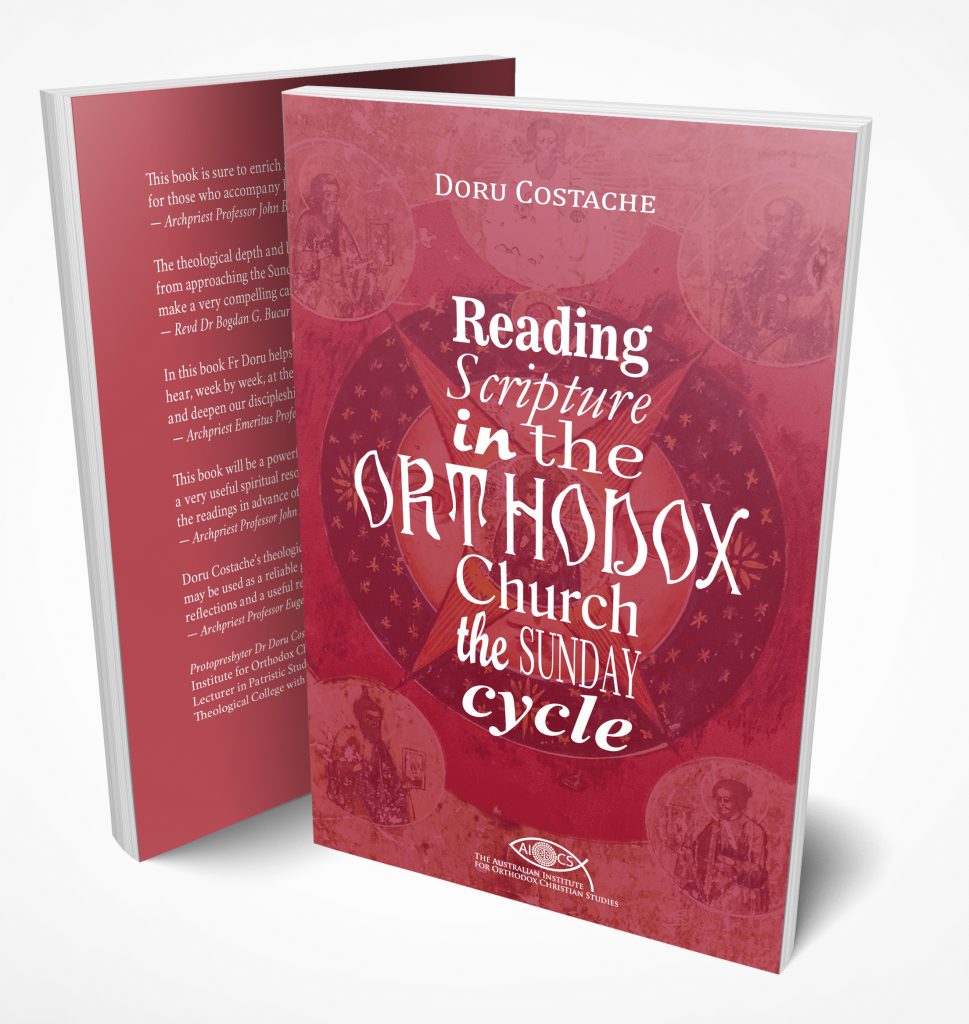Reflections on the Paschal season
Protopresbyter Dr Doru Costache
Part One: The First Sunday
Recorded on 21 April 2020
Free content
Topic: Divine adoption and inner renewal
Reflective framework
The Paschal Revolution: Beyond the Forty Days with the Risen Lord
Reflection on the festival’s scriptural readings: Acts 1:1–8; John 1:1–17
Excerpt from Reading Scripture in the Orthodox Church: The Festal Cycle (pp. 59-60)
Today we celebrate the inauguration of the new life bestowed on us. As the hymn teaches, “Christ is risen from the dead, trampling down death by death, and to those in the tombs he granted life.” We do not only celebrate Christ’s resurrection. What we do is contemplate the main outcome of the event, the life springing forth from Christ and imparted to us, those in the tombs. The two New Testament readings are from the beginning of John and Acts. They are not chosen because they speak about Christ’s resurrection. Whereas the apostolic passage indirectly refers to the event, depicting the days after it, the Gospel reading remains completely silent in this regard. The two passages are chosen because it is on this Sunday that the Orthodox Church begins its annual cycle of scriptural readings, signifying the beginning of our salvation. This cycle commences with John, the Gospel of the spiritually mature, and with Acts, the good news of the ecclesial life. In so doing, the liturgical year takes for granted that the listeners already have a solid faith background and that they do not require the historical introduction of the synoptic Gospels. This means, furthermore, that the lens through which we must consider the synoptic Gospels is the ecclesial perception, something obvious in the fourth one. But the association of these two readings today is not arbitrary; they share common ground. Here is their message. The contemporaries of Christ’s earthly sojourn did not recognise him as God, Logos of God, God incarnate, creator and saviour. We are better positioned. In the light of our resurrectional experience with Jesus Christ glorified everything makes sense. By reading these narratives in liturgical context, we accompany the disciples who for forty days received the Lord’s instruction about the mysteries of the kingdom, the final revelation of the Gospel’s content. It is thus that we contemplate his earthly sojourn. We do not seek the historical Jesus. We behold the glory of the Only-begotten of the Father, through whom all are created and saved. It is the beginning of the paschal revolution. Those of us who believe he is God incarnate are transformed into children of God, inheritors of the kingdom’s grace. We do not need signs and wonders. We see with our very eyes the glory of our maker and saviour, richly attested, unquestionably so, by his Holy Spirit who graciously warms our hearts. Let us rejoice, children of God!
Reflection on the festival’s message
Excerpt from The Orthodox Spring: A Diary (p. 59)
“Christ rose from the dead and trampled down death by death, granting life to those in the tombs.” We sing this hymn—every year—from the Resurrection to the Ascension, to proclaim our own resurrection from the dead, to the newness of life (Romans 6:4). We are those in the tombs of darkness, ignorance, and sin. We are the dead risen to the true life. And now, receiving Christ through faith, believing in the name (John 1:12) of him who is the life and the light of the world (John 1:4; 8:12; 11:25–26), we have access to the source of life, the giver of life—the Holy Spirit who ever is with Christ and whom the Lord imparts to us (John 1:32–33). Thus are we reborn as “children of God . . . born, not of blood or of the will of the flesh or of the will of man, but of God” (John 1:12–13), becoming “partakers of the divine life” (2 Peter 1:4). Accordingly, we see the glory of the Onlybegotten of the Father, “full of grace and truth,” and from whom we receive “grace upon grace” (John 1:14,16). Seeing is becoming. What we behold, that we become. And when we become what we see (Colossians 3:4; 1 John 3:2), “the creation itself will be set free from its bondage to decay, gaining the freedom of the glory of God’s children” (Romans 8:21). This, in a nutshell, is the paschal mystery, no more, no less. This is Christ’s paschal work, and the Gospel makes no other promise. Let no mouth open to gainsay it. Glory be to him!
21 April 2020 © AIOCS
The second part and the third part
Please support our not-for-profit ministry (ABN 76649025141)
For donations, please go to https://www.paypal.com/paypalme/aiocsnet or contact us at info@aiocs.net


